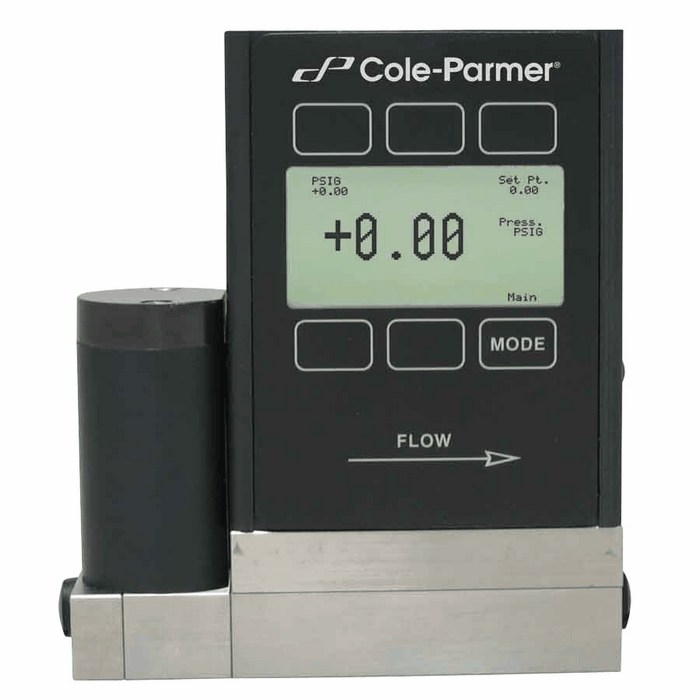
Convert 120 Psig To Psia
Next, let's look at an example showing the work and calculations that are involved in converting from pounds per square inch to bars (psi to bar). Psi to Bar Conversion Example Task: Convert 75 psi to bars (show work) Formula: psi ÷ 14.5038 = bar Calculations: 75 psi ÷ 14.5038 = 5.17106797 bar Result: 75 psi is equal to 5.17106797 bar
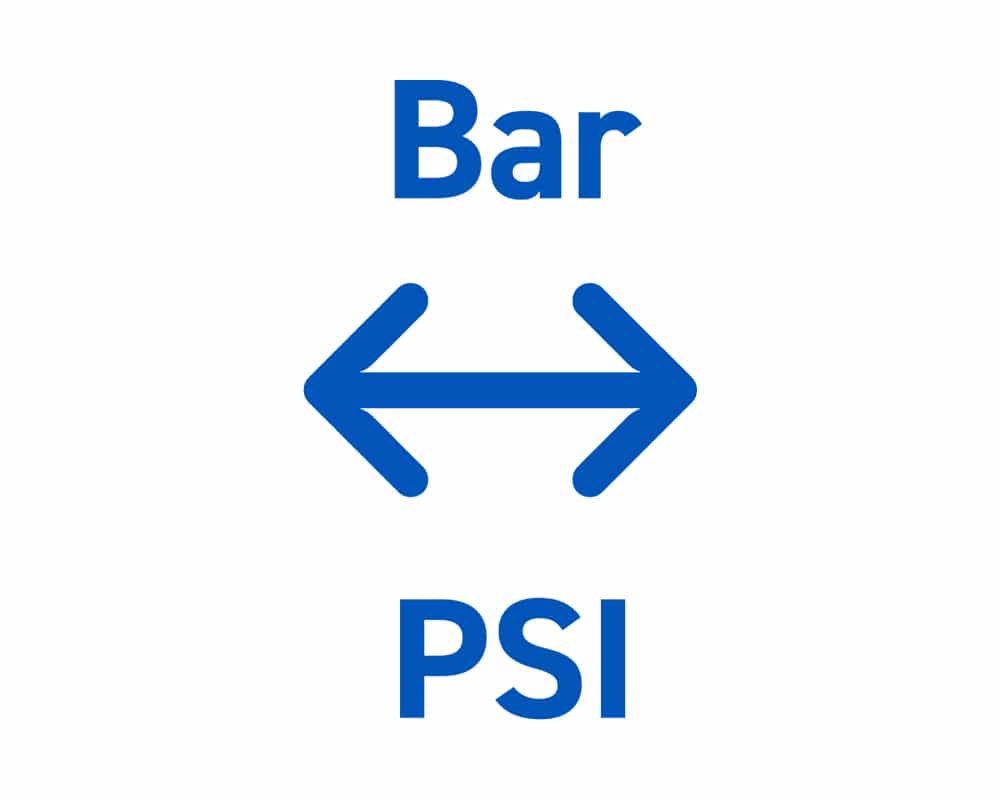
Barg To Psig Conversion / bargconversion Images Frompo 1 / Set
To convert lb/in 2 to bar, use the conversion factor. 1 bar = 14.5037744 lb/in 2. then divide both sides of the equation by bar, to get the conversion ratio. 1 = 14.5037744 lb/in 2 / bar. Use the conversion ratio to complete the unit conversion, basically dividing the input by 1, the lb/in2 units cancel out, and we are left with bar units.
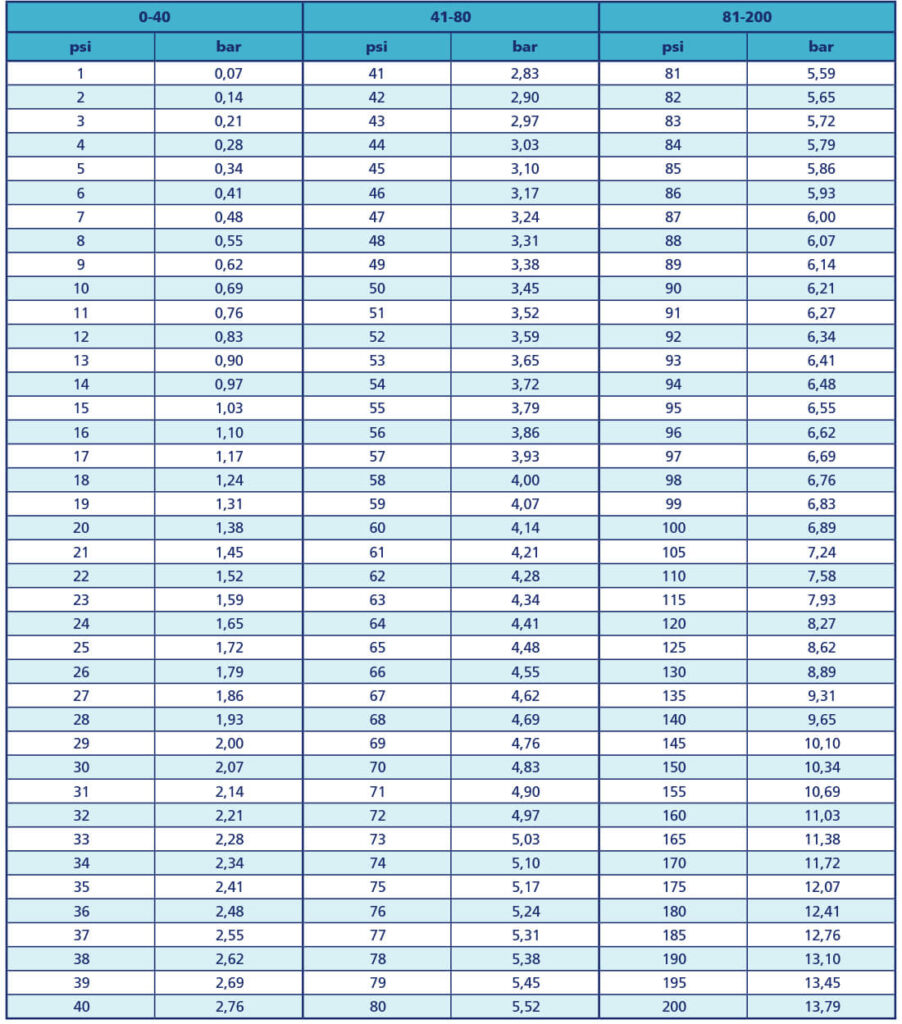
Aseptic Group Tools
psi can be converted into bar pressure units manually using the following calculation: 1 bar = 100000 pascals (Pa) 1 psi = 6894.76 pascals (Pa) bar value x 100000 Pa = psi value x 6894.76 Pa. bar value = psi value x 0.068948. 0…1,000 psi to bar Conversion. 0…10,000 psi to bar Conversion. 0…100,000 psi to bar Conversion.
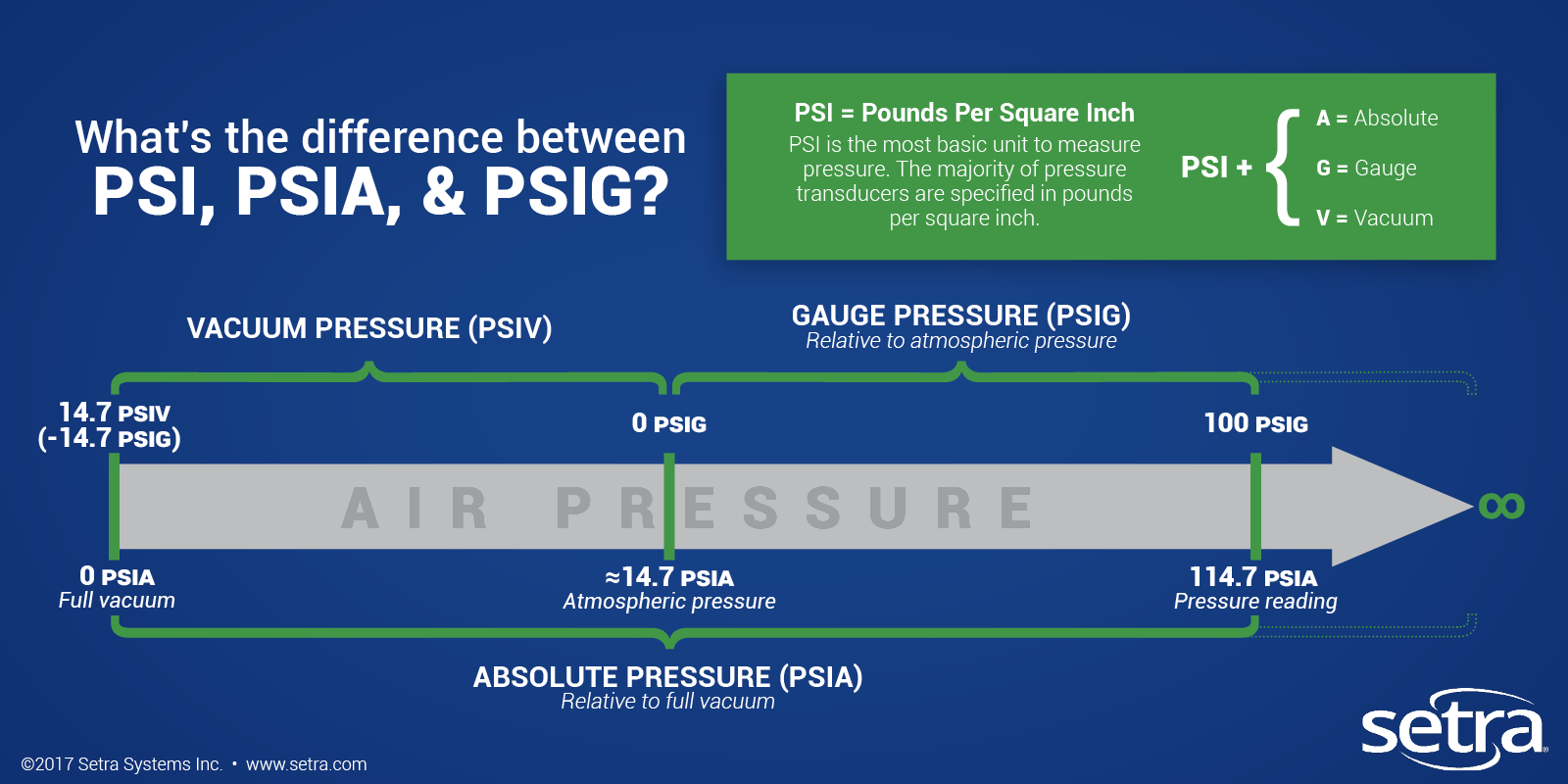
Barg To Psig Conversion Katherin Barg The Conversation / Is it the
More information from the unit converter. How many bar in 1 psi? The answer is 0.0689475728. We assume you are converting between bar and pound/square inch.You can view more details on each measurement unit: bar or psi The SI derived unit for pressure is the pascal. 1 pascal is equal to 1.0E-5 bar, or 0.00014503773800722 psi. Note that rounding errors may occur, so always check the results.
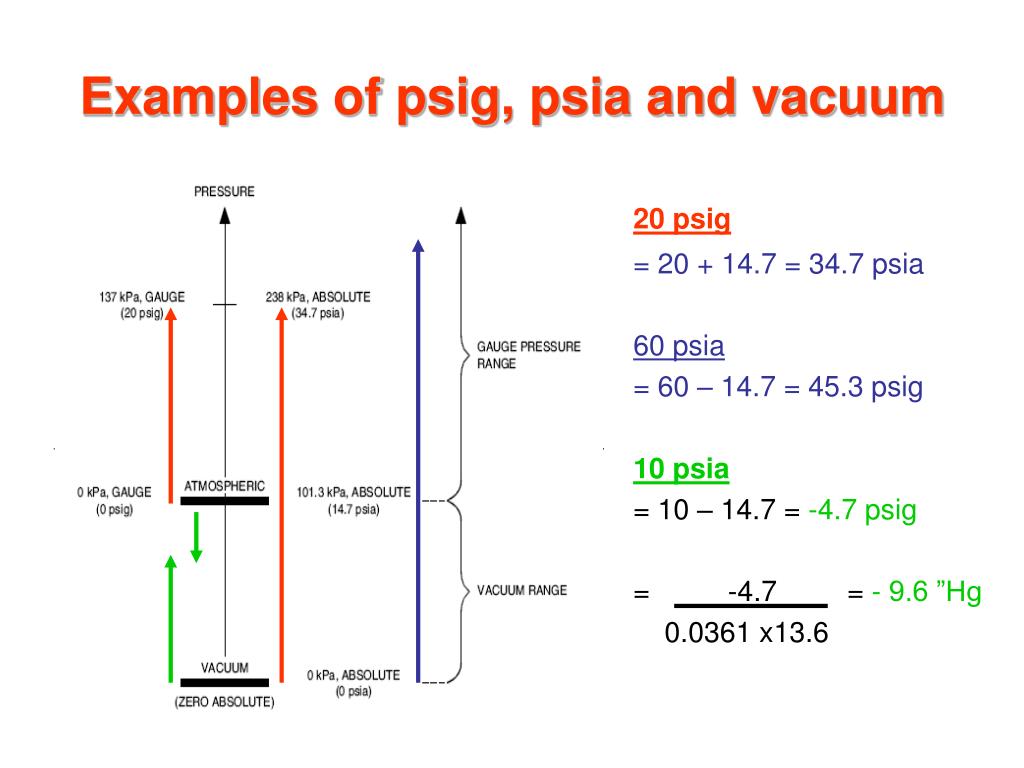
Barg To Psig Conversion Katherin Barg The Conversation / Is it the
1 bar is equal to 14.503773779685869 Pound-force per Square Inch (psi) psi to bar Formula: The formula for is: bar = psi ÷ 14.5038. How do you convert pounds per square inch to bars? Convert with: Online psi to bar converter; Formula (the below example helps you) Example of conversions between pounds per square inch and bars:

Barg To Psig Conversion / bargconversion Images Frompo 1 / Set
How many bar in 1 psig? The answer is 0.0689475728. We assume you are converting between bar and pound/square inch [gauge]. You can view more details on each measurement unit: bar or psig The SI derived unit for pressure is the pascal. 1 pascal is equal to 1.0E-5 bar, or 0.00014503773800722 psig. Note that rounding errors may occur, so always.

Difference Between PSI and PSIG YouTube
A bar is a non-SI unit of Pressure. The symbol for bar is bar. A bar is equal to a pressure of 100,000 pascals or 0.986923 atmospheres.

Bar to psi conversion sunrisewest
Bar. Definition: A bar (symbol: bar) is a metric unit of pressure that is defined as exactly 100,000 pascals (symbol: Pa). It is equal to 0.987 atmospheres (101,325 Pa), the unit often used as a reference of standard pressure. History/origin: The unit, bar, was introduced by Vilhelm Bjerknes, a Norwegian meteorologist who founded modern weather forecasting.

Actualizar 52+ imagen conversion de bar a psi formula Abzlocal.mx
Bar (Metric), pressure. The bar (symbol bar) and the millibar (symbol mbar, also mb) are units of pressure. They are not SI units, but accepted (although discouraged) for use with the SI. The bar is still widely used in descriptions of pressure because it is about the same as atmospheric pressure.

Psig To Bar Conversion Chart Chart Examples
0.06895 Bar (bar) Psi : Psi is the abbreviation of pound per square inch, and is widely used in British and American. 1 psi = 6,894.76 Pascals. Bar : The bar is a unit of measurement for pressure. It is widely used in the daily life particularly in European countries, though that is a non-SI unit. 1 bar is equal to 100,000 Pascals, which is.

De fapt Conștientizarea import psi to bar calculator chimicale Agresiv
Psi. Bar. Psi/Bar. Bar/Psi. This calculator allows you to convert from Psi to Bar and in a reverse direction. To convert from Psi to Bar, enter the amount of Psi into the first input and to convert from Bar to Psi, enter the amount of Bar into the second input. 1 Psi = 0.068947572931783 Bar.

Dayton 4ZM14 Pneumatic Pressure Regulator 300 PSIG 21 Bar Maverick
One psi is equal to 6895 N/m2 and 0.0689475729 bar. Bar : A bar is a metric system measuring unit of pressure. It is approximately equal to atmospheric pressure on earth at sea level. It is denoted as "bar". One bar is equal to 100,000 Pascals and 14.503773773 psi. Psi to Bar: It is a free online psi to bar pressure conversion converter.
Ingersoll Rand 90 PSIG/ PMAX 6.2 BAR Fastener Installation Tool IMS
When converting to bars, psia is the same as psi; we add 'a' to indicate that this is a measure of absolute pressure relative to vacuum, not relative pressure to atmospheric pressure. 1 bar is equal to 14.5037738 psia. psig stands for 'pounds per square inch gauge'. When converting to bars, psig is the same as psi and psia; we add 'g.
Ingersoll Rand 90 PSIG/ PMAX 6.2 BAR Fastener Installation Tool IMS
More information from the unit converter. How many psi in 1 bar? The answer is 14.503773800722. We assume you are converting between pound/square inch and bar.You can view more details on each measurement unit: psi or bar The SI derived unit for pressure is the pascal. 1 pascal is equal to 0.00014503773800722 psi, or 1.0E-5 bar. Note that rounding errors may occur, so always check the results.

Utility Pressure Gauge Back Mounted 0 to 15 psig, 1 bar
How many psig in 1 bar? The answer is 14.503773800722. We assume you are converting between pound/square inch [gauge] and bar. You can view more details on each measurement unit: psig or bar The SI derived unit for pressure is the pascal. 1 pascal is equal to 0.00014503773800722 psig, or 1.0E-5 bar. Note that rounding errors may occur, so.
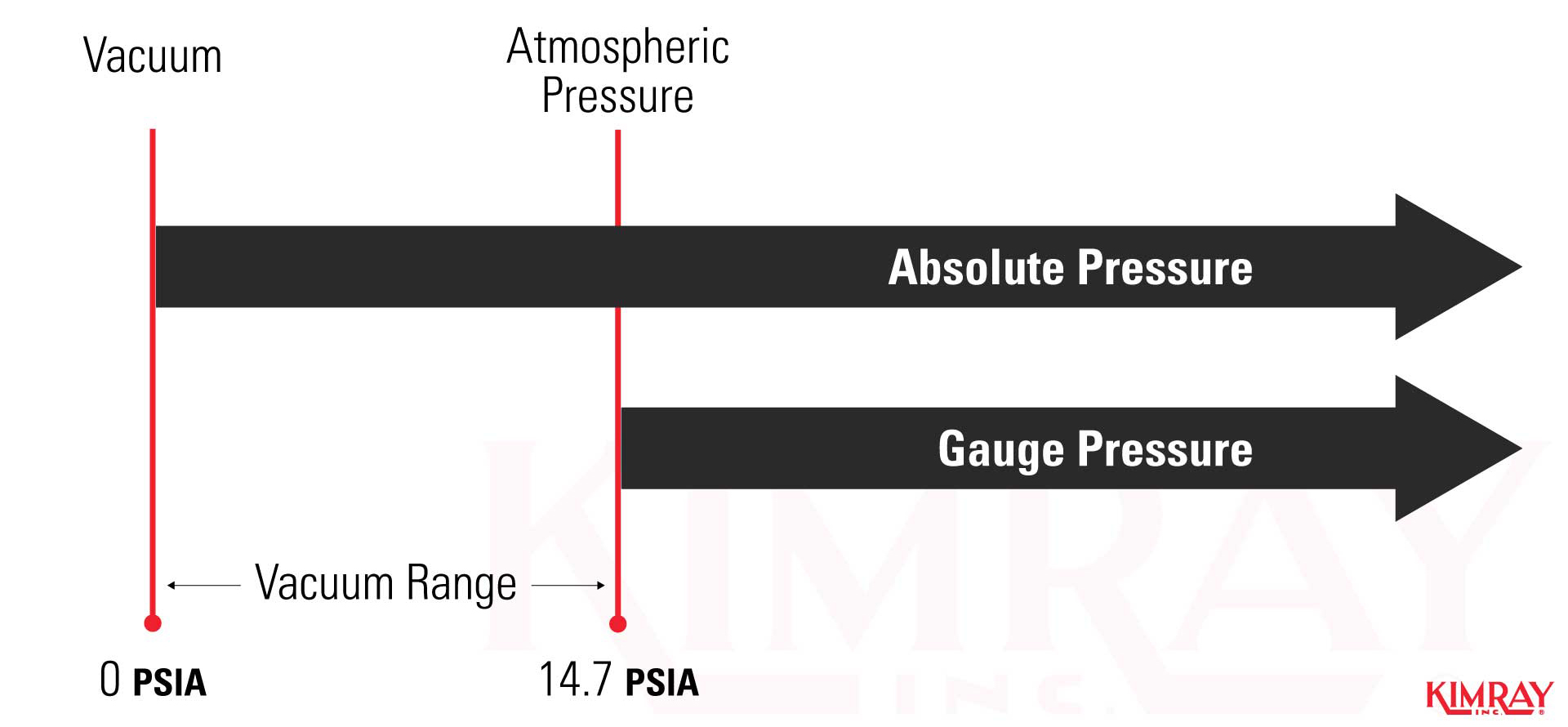
Total 78+ imagen psia to bar conversion Expoproveedorindustrial.mx
Definition: A bar (symbol: bar) is a metric unit of pressure that is defined as exactly 100,000 pascals (symbol: Pa). It is equal to 0.987 atmospheres (101,325 Pa), the unit often used as a reference of standard pressure. History/origin: The unit, bar, was introduced by Vilhelm Bjerknes, a Norwegian meteorologist who founded modern weather.